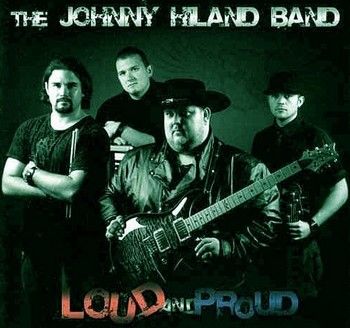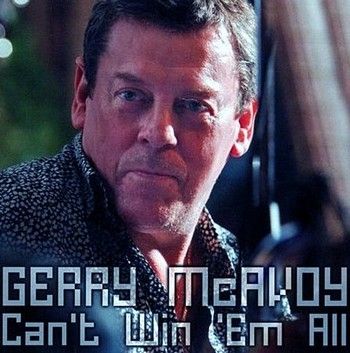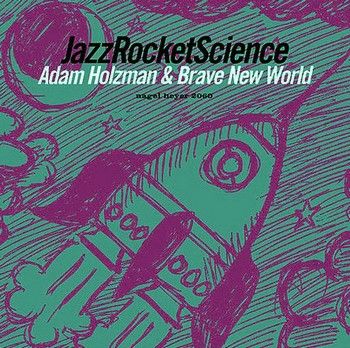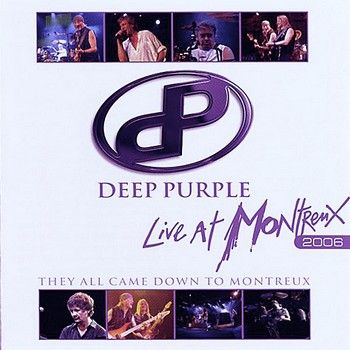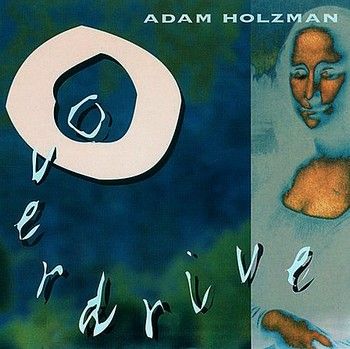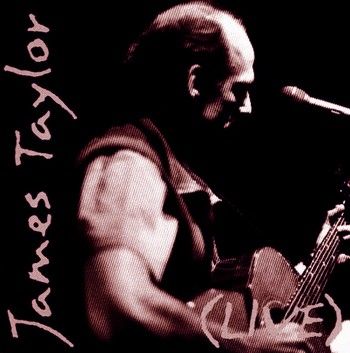 James Taylor - (Live) - 1993 - Columbia
James Taylor - (Live) - 1993 - Columbia
Rolling Stone (9/30/93, p.101) - 4 Stars - Excellent - "...LIVE makes clear [that] Taylor's popularity is not merely a case of nostalgia but a testament to the abiding power and depth of his artistry..."Entertainment Weekly (8/6/93, p.56) - "...JT's at the top of his familiar folksy form, singing with tangible pleasure, and a wry rhythmic kick..." Rating: B+
Q (11/93, p.137) - 4 Stars - Excellent - "...James Taylor has always been a top-notch act, exuding charisma and effortless musicality.... [LIVE is] proof..."
"A live James Taylor album has been suggested, demanded and contemplated for many years," writes Taylor's manager/producer, Peter Asher, in this album's liner notes, and the reasons are not hard to find. For one thing, Taylor has been a successful concert attraction for more than 20 years. For another, an artist who has scored in excess of 30 chart records (on four different labels) over those years is represented by only one, 20-year-old hits compilation. The 30-track, two-hour Live, drawn from a tour staged specifically to record it, is an attempt to address those points. Fronting a typically top-notch band, Taylor ranges across his repertoire, back to 1968 for "Something in the Way She Moves" and "Carolina in My Mind," and up to 1991 for "Copperline," among other songs drawn from New Moon Shine. In between come most of his hits. (The most notable exception is "Her Town, Too," and there is a general paucity of later recordings like "That's Why I'm Here" and "Never Die Young.") Taylor treats the material in his relaxed, assured style, making occasional ironic or self-deprecatory remarks between songs and charming his audience even more. The effect of presenting the songs in a uniform manner is to imply an equality between them, as though the deeper material was less significant and the slighter songs more substantial. But that doesn't keep the set from being a consistently enjoyable listening experience. Taylor remains sorely in need of a retrospective that would bring his work into concise coherence, but this one at least presents most of his best-known material in effective performances. © William Ruhlmann © 2011 Rovi Corporation. All Rights Reserved http://www.allmusic.com/album/r188465/review
Although he is a seasoned and well-loved live performer, James Taylor had never made a live record before 1993, when he released this two-CD set. Culled from a series of 14 concerts, these 30 songs capture the genial Taylor digging into an impressively rich bag of songs, with crowd-pleasing results. It's an extremely faithful recording--no overdubs--and the band is top-notch, with a standout backup vocal section. Taylor proves he doesn't mind serving up old chestnuts even after performing them for decades, and delivers the goods with such staples as "You've Got a Friend" and "Fire and Rain." The first CD concentrates a bit more on classic-era James Taylor--CD 2 leans a bit toward his later career--but most of these songs will be familiar to anyone who was around when Taylor was a fixture on American radio. Beginning with a luminescent "Sweet Baby James," he remains faithful to the spirit of hits like "Shower the People" "Your Smiling Face", and "How Sweet it Is," although he sometimes plays around with his vocal delivery, as on the driving "Steamroller Blues." All in all, this is a satisfying retrospective of a distinguished body of work. © 1996 - 2011 CD Universe; Portions © 1948 - 2011 Muze Inc. For personal non-commercial use only. All rights reserved
Thirty tracks taken from 14 shows during a tour in November 1992.
James Taylor is a struggling, young, hugely talented singer/songwriter who has been ignored by the media for far too long. Buy a few of his albums and support this guy! (LOL!). But seriously,what can you say about James Taylor's artistry that hasn't already been said? The album is
VHR by A.O.O.F.C. N.B: 2 rar files are 2 separate albums. They are v.large files @ 320 Kbps. Think before you DL
CD ONE
1.01 Sweet Baby James
1.02 Traffic Jam
1.03 Handy Man - Otis Blackwell, Jimmy Jones, Charles Merenstein
1.04 Your Smiling Face
1.05 Secret O' Life
1.06 Shed A Little Light
1.07 Everybody Has The Blues
1.08 Steamroller Blues
1.09 Mexico
1.10 Millworker
1.11 Country Road
1.12 Fire And Rain
1.13 Shower The People
1.14 How Sweet It Is - Lamont Dozier, Brian Holland, Eddie Holland
1.15 New Hymn - James Taylor, Reynolds Price
CD TWO
2.01 Walking Man
2.02 Riding On A Railroad
2.03 Something In The Way She Moves
2.04 Sun On The Moon
2.05 Up On The Roof - Carole King, Gerry Goffin
2.06 Don't Let Me Be Lonely Tonight
2.07 She Thinks I Still Care - Steve Duffy, Dickey Lee Lipscomb
2.08 Copperline - James Taylor, Reynolds Price
2.09 Slap Leather
2.10 Only One
2.11 You Make It Easy
2.12 Carolina On My Mind
2.13 I Will Follow
2.14 You've Got A Friend - Carole King
2.15 That Lonesome Road - James Taylor, Don Grolnick
All songs composed by James Taylor unless stated otherwise
MUSICIANS
James Taylor - Guitar, Vocals
Michael Landau - Guitar
Jimmy Johnson - Bass
Clifford Carter - Keyboards
Don Grolnick - Piano
Carlos Vega - Drums
Arnold McCuller, Kate Markowitz, David Lasley, Valerie Carter - Vocals
BIO
When people use the term "singer/songwriter" (often modified by the word "sensitive") in praise or in criticism, they're thinking of James Taylor. In the early '70s, when he appeared with his introspective songs, acoustic guitar, and calm, understated singing style, he mirrored a generation's emotional exhaustion after tumultuous times. Just as Bing Crosby's reassuring voice brought the country out of the Depression and through World War II, Taylor's eased the transition from '60s activism and its attendant frustrations into the less political, more inward-looking '70s. He was rewarded with a series of hit albums and singles (surprisingly, many of the latter were covers of old songs rather than his own compositions), and he managed to survive his initial fame to achieve lasting popularity. He continued to tour successfully for decades, and, starting with his 1970 breakthrough Sweet Baby James, all but one of his regular album releases for the rest of the century went gold or platinum, while his 1976 Greatest Hits album achieved a diamond certification reflecting sales of more than ten million copies. Taylor was the son of Dr. Isaac and Gertrude Taylor. His three brothers Alex (1947-1993), Livingston, and Hugh -- and his sister Kate -- all became musicians and recorded albums of their own. In 1951, Dr. Taylor was appointed dean of the medical school at the University of North Carolina at Chapel Hill, and the family moved from New England to the South. Taylor studied cello as a child, but first took up the guitar in 1960. In 1963, he began attending Milton Academy, a prep school in Massachusetts. That summer, he met fellow guitarist Danny "Kootch" Kortchmar while staying on Martha' s Vineyard, and the two formed a folk duo. Taylor dropped out of school at 16 and formed a band with his brother Alex. Having moved to New York, he suffered from depression and checked himself into McLean Psychiatric Hospital in Massachusetts, a stay that would inspire some of his early songs. While there, he earned a high-school diploma. Upon release, he returned to New York in 1966 and formed a new group, the Flying Machine, with Kortchmar and Joel O'Brien. The band played in Greenwich Village and was signed to a fledgling record label, Rainy Day Records (the name taken from Taylor' s song "Rainy Day Man"). It released one single, "Brighten Your Night with My Day" / "Night Owl," both songs written by Taylor. The record was unsuccessful, and the band broke up in the spring of 1967. By 1968, Taylor had become addicted to heroin. In an attempt to overcome his addiction, he moved to London, where he submitted a demo tape to Peter Asher, former member of Peter & Gordon, then working for the Beatles' Apple Records label. As a result, Taylor was signed to Apple and recorded his debut solo album, James Taylor, released in the U.K. in December 1968 and in the U.S. in February 1969. Initially, it received little attention. A more pressing concern, however, was that Taylor had not been able to kick heroin. As a result, he returned to the U.S. and checked into the Austin Riggs Hospital in Massachusetts. By July 1969, he had recovered sufficiently to make his solo debut at the Troubadour nightclub in Los Angeles, but soon after he was in a motorcycle accident and broke both of his hands, which put him out of commission for several months. Freed of his Apple Records contract, Taylor signed to Warner Bros. Records, moved to California, and, retaining Asher as his manager and producer, recorded his second album, Sweet Baby James. It was released in February 1970 and became a major success during the course of the year, spurred by the single "Fire and Rain," a song that reflected on his experiences in mental institutions, which peaked in the Top Five in October, the same month that Sweet Baby James achieved the same status on the LP charts. With that, interest in Taylor's first album was re-stimulated, and it belatedly reached the charts along with the single "Carolina on My Mind," as did James Taylor and the Original Flying Machine -- 1967, a short collection of unfinished recordings made by his '60s band. Sweet Baby James then spawned a second hit single, "Country Road," which peaked in the Top 40 in March 1971. The same month, Taylor appeared on the cover of Time magazine, touted as the founder and leading proponent of the "singer/songwriter" trend in popular music. Meanwhile, Taylor had acted in a feature film, Two-Lane Blacktop, co-starring with the Beach Boys' Dennis Wilson. It was not successful, and Taylor never pursued an acting career, though it has been well reviewed subsequently. Taylor also worked on a new album, returning to record stores in April 1971 with Mud Slide Slim and the Blue Horizon. As he toured the U.S., the LP spent the summer in the Top Ten, eventually peaking just below the top of the charts, paced by its first single, "You've Got a Friend," written by Carole King, which hit number one in July and went gold. A second single, "Long Ago and Far Away," reached the Top 40, and the album eventually sold more than two million copies. On March 14, 1972, Taylor won the 1971 Grammy for Best Pop Vocal Performance, Male, for "You've Got a Friend." Taylor took what was then considered a long time -- more than a year and a half -- to come up with his next album, One Man Dog, released in November 1972. On November 3, 1972, during an appearance at Radio City Music Hall in New York, he announced to the crowd that he had married singer/songwriter Carly Simon earlier in the day. Simon was already well known for the hits "That's the Way I've Always Heard It Should Be" and "Anticipation," and would soon top the charts with "You're So Vain." One Man Dog marked a fall-off in Taylor's record sales, though it went gold, reached the Top Five, and spawned a Top 20 single in "Don't Let Me Be Lonely Tonight." Taylor was next heard from in January 1974, when he sang a duet with his wife of "Mockingbird," a cover of the 1963 hit by Inez & Charlie Foxx, on her Hotcakes album. Released as a single, the recording reached the Top Five and went gold. That spring, Taylor launched a major tour in anticipation of his next album, Walking Man, released in June. Though it reached the Top 20, the album was a commercial disappointment, failing to go gold or produce a chart single. But Taylor bounced back the following year with the May release of Gorilla. Again, he succeeded by reviving an old hit, this time Marvin Gaye's 1964 song "How Sweet It Is (To Be Loved by You)," which reached the Top Five, helping the album become a Top Ten, gold-selling hit. In the Pocket, Taylor's seventh album, was his third annual warm-weather release, appearing in June 1976. Its single was the singer's own "Shower the People," which reached the Top 40, while the album made the Top 20 and went gold. Nearing the end of his Warner Bros. contract, Taylor re-recorded a couple of his Apple songs for his Greatest Hits LP, released in November. It became a perennial seller. With that, in a major coup, he was signed by Columbia Records. His debut for the label, JT, was released in June 1977. Once again, a revival spurred its sales, as Taylor covered Jimmy James' 1959 song "Handy Man" and took it into the Top Five, followed by a Top 20 showing for his own "Your Smiling Face." With such stimulation, JT reached the Top Five and sold over two million copies. On February 23, 1978, Taylor picked up a second Grammy for Best Pop Vocal Performance, Male, for "Handy Man." Along with Paul Simon, Taylor was a featured singer on Art Garfunkel's cover of "(What A) Wonderful World," previously a hit for Sam Cooke and Herman's Hermits, which peaked in the Top 20 in March 1978. Taylor next became involved with the Broadway musical Working, based on Studs Terkel's bestseller, writing three songs for it. The show ran a scant 25 performances after opening on May 14, 1978, but Taylor reclaimed "Millworker" and "Brother Trucker" for his next album. Meanwhile, his duet with Carly Simon on a revival of the Everly Brothers' "Devoted to You" peaked in the Top 40 in September. Flag, marking a nearly two-year break between albums, appeared in April 1979, its Top 40 hit single being a revival of the 1963 Drifters hit "Up on the Roof." Despite the lack of a really big hit single, the LP reached the Top Ten and went platinum. That September, Taylor performed at Madison Square Garden in the No Nukes concerts, later being featured in the No Nukes triple LP and in the No Nukes concert film. Taylor embarked on a national tour in the summer of 1980, despite not having a current album to promote. From here on, recurrent touring became a regular part of his career and contributed to his longevity as an artist. That fall, he appeared on the children's album In Harmony 2, singing "Jelly Man Kelly." The album won the 1981 Grammy for Best Recording for Children. He toured extensively during 1981, releasing Dad Loves His Work in February. The album reached the Top Ten and went gold, spurred by the Top Ten success of the single "Her Town Too," written by Taylor, J.D. Souther, and Waddy Wachtel, Taylor's most successful original composition since "Fire and Rain." Taylor continued to tour frequently in the early '80s, a period when his marriage to Carly Simon came to an end (they were divorced in 1983). Often, his performances took place overseas. In January 1985, he performed at the Rock in Rio concert in Brazil, a show that resulted in the Brazil-only release Live in Rio. His next studio album, following a gap of more than four years, was That's Why I'm Here, released in October 1985. As usual, his record label issued a cover song as the single; in this case it was Buddy Holly's "Everyday," which didn't get very far up the charts. Nevertheless, Taylor's long career and constant touring had brought him a permanent audience ready to buy his records, and the album eventually went platinum. On December 14, 1985, he married for the second time, to Kathryn Walker; a month later, he was on tour in Australia. Road work continued to be Taylor's primary occupation in the mid-'80s, but he came off tour long enough to finish another album, Never Die Young, only a little more than two years after That's Why I'm Here, released in January 1988. The title song, issued as a single, barely reached the charts, but Never Die Young was another million-seller. The late '80s and early '90s saw more extensive worldwide touring. New Moon Shine, Taylor's 13th regular album release, came in October 1991, the same month that he sold out six consecutive shows at the Paramount Theater in New York; the disc stayed in the charts nearly a year and sold a million copies. Despite his consistent draw as a concert attraction, Taylor had never released a live album in the U.S. until the August 1993 appearance of Live, a two-CD set that went platinum within months. Columbia Records, which had never had a Taylor compilation to promote, trimmed the album down to a single disc of hits for the 1994 release (Best Live). Taylor was divorced from his second wife in 1996. His next album, Hourglass, released in May 1997, demonstrated his continuing appeal by entering the charts in the Top Ten. On February 25, 1998, it won the 1997 Grammy for Best Pop Album. In October the same year, Columbia issued the DVD Live at the Beacon Theatre while Billboard magazine was honoring Taylor with their highest accolade, the Century Award. By 2000, Taylor's first Greatest Hits collection had sold over ten million copies, earning him the RIAA's Diamond Award. Taylor was also inducted into both the Rock & Roll Hall of Fame and the Songwriter's Hall of Fame in 2000, and at the end of the year, Columbia issued Greatest Hits, Vol. 2, covering the years 1977-1997. Fans who had waited five years for new material were awarded with October Road in 2002, an album that earned two Grammy nominations and eventually went platinum. A year later, The Best of James Taylor became the first compilation to cover material from his years with Apple, Warner Bros., and Columbia. In 2004, he appeared on the television show The West Wing, released a Christmas Album, and sang the national anthem before game two of the World Series. Two years later, Taylor released James Taylor at Christmas and made an appearance on the soundtrack for the Pixar film Cars. In 2007, the CD/DVD One Man Band was released on the Hear Music label. An album featuring a dozen cover versions of various songs, simply and appropriately called Covers, followed a year later in 2008, also from Hear Music. A sequel, Other Covers, appeared in 2009. Following a highly successful dual tour with Carole King, Taylor and King released a concert CD/DVD set called Troubadour Reunion in 2010.




